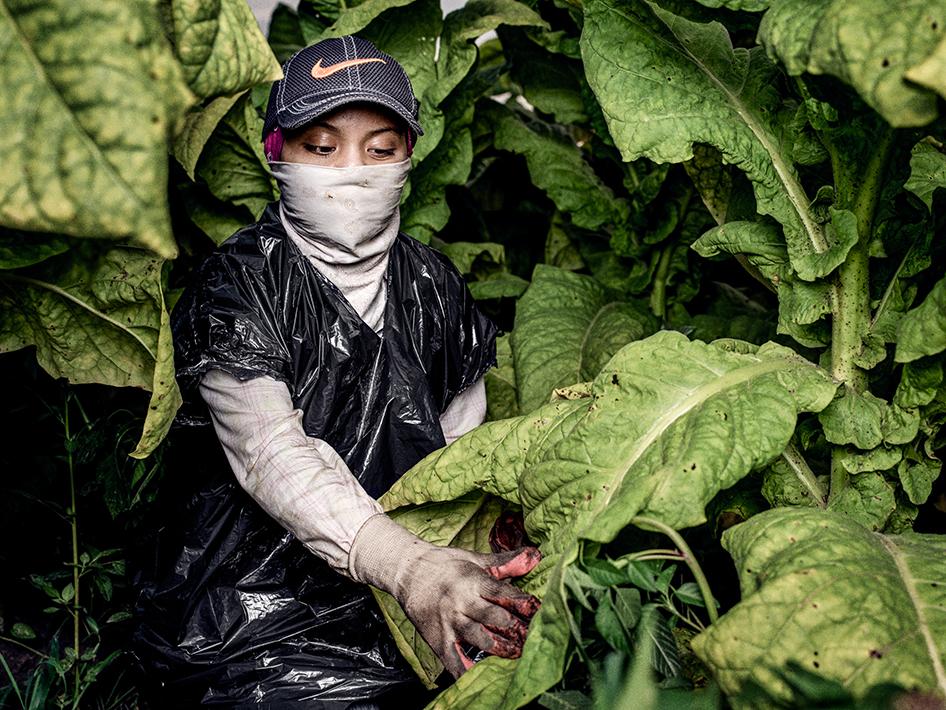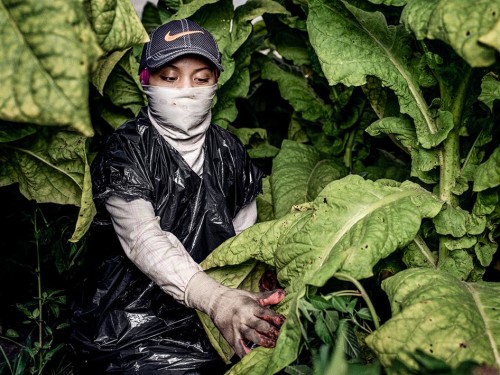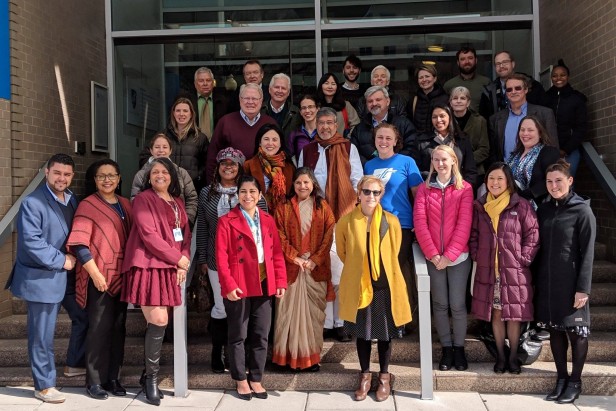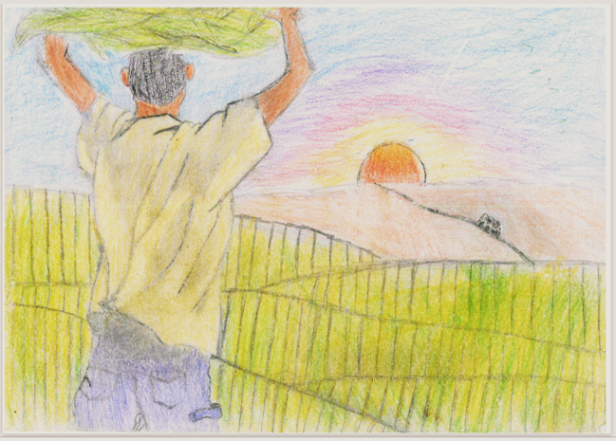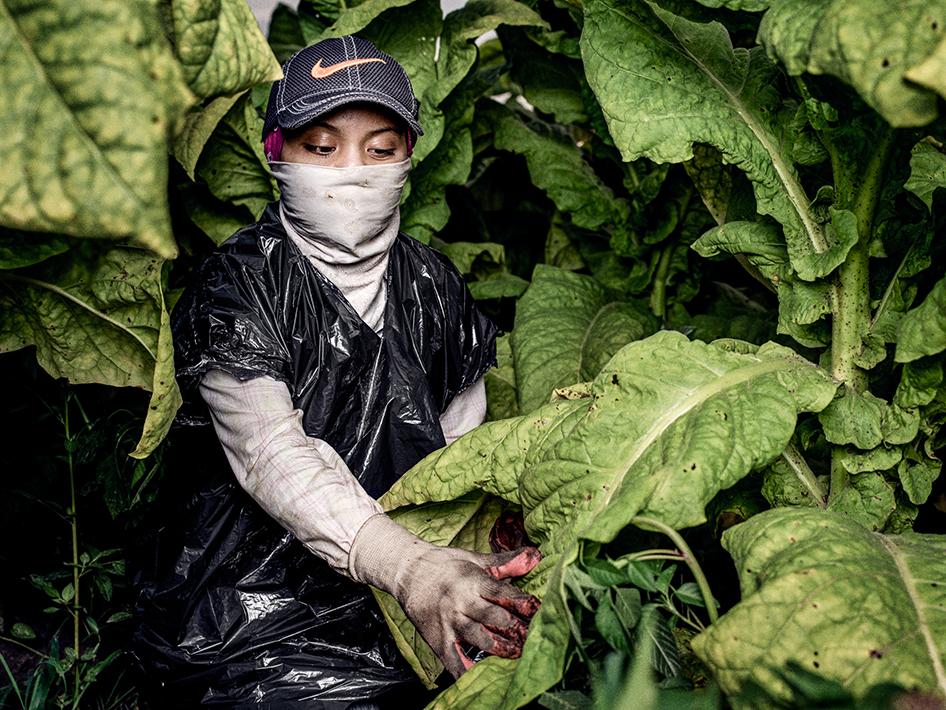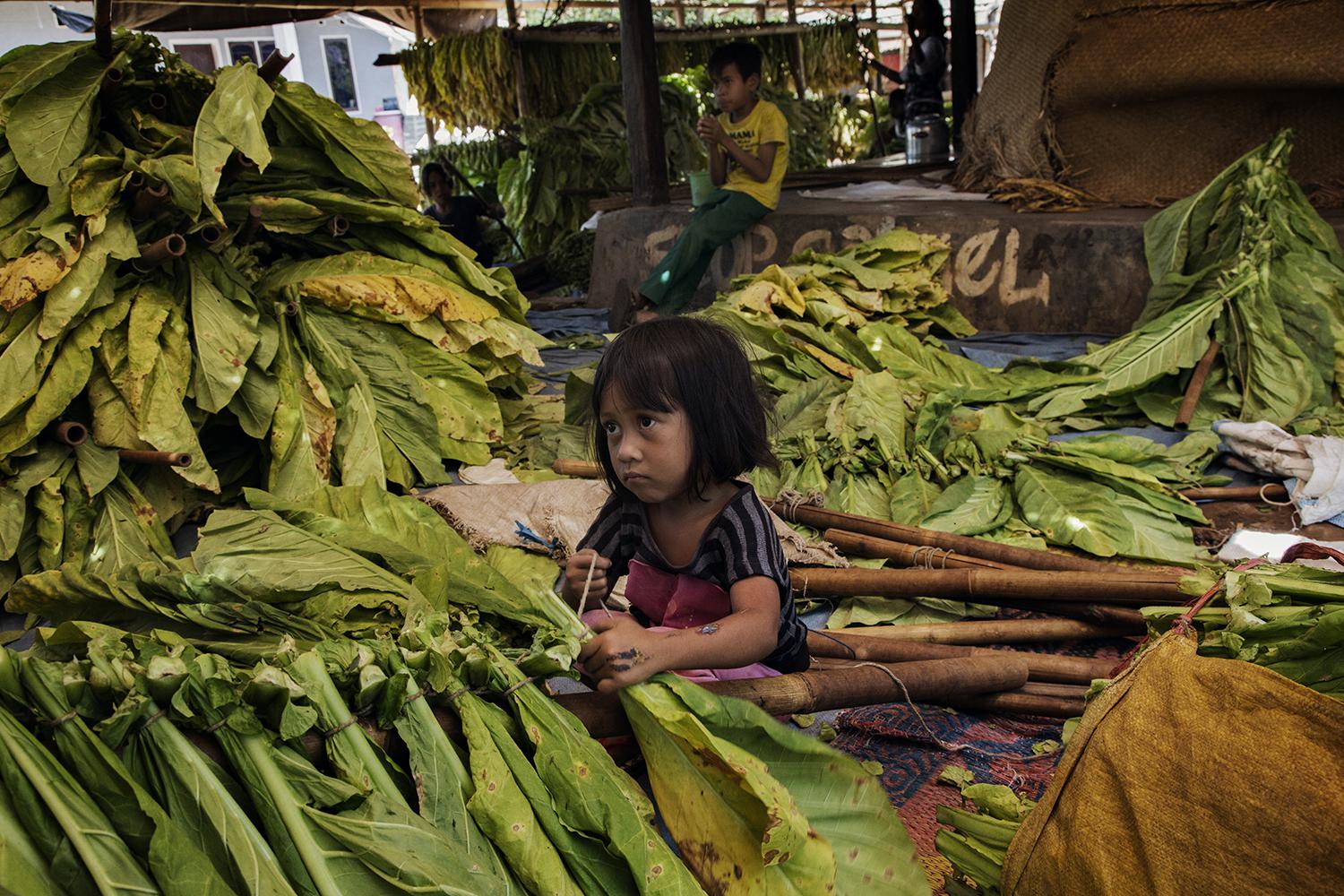75-plus Organizations Endorse “Children Don’t Belong on Tobacco Farms”, H.R. 3335, Legislation
In the U.S., you must be 21 years old to buy cigarettes, but exemptions to child labor laws allow 12-year-olds to harvest toxic tobacco.
Even the tobacco industry acknowledges that children under 16 should not harvest this toxic crop. In 2015, they negotiated a compromise with former DOL Secretary Tom Perez in which they pledged to ask farmers not to hire teens under 16 to harvest the crop. That compromise is not working and is unenforceable, preventing DOL Wage and Hour investigators from protecting child farmworkers.
Rep. Rosa DeLauro’s Children Don’t Belong on Tobacco Farms Act is a simple bill that bans minors from working on this dangerous crop, which often makes farmworkers sick. Symptoms of Green Tobacco Sickness include headaches, dizziness, nausea, fainting, and vomiting. Increasingly, researchers believe there may be long-term health impacts.
The Child Labor Coalition, consisting of 38 organizations, endorses the bill.
More than 75 organizations, including the AFL-CIO, Human Rights Watch, the American Academy of Pediatrics and numerous farmworker and faith-based groups have endorsed this bill
| Child Labor Coalition |
| Action on Smoking and Health |
| AFL-CIO |
| Alianza Nacional de Campesinas |
| American Academy of Pediatrics |
| American Federation of Teachers |
| Amnesty International USA |
| Association of Farmworker Opportunity Programs |
| Beyond Pesticides |
| California Church Impact |
| Campaign for Tobacco Free Kids |
| Campaign to End US Child Labor |
| Center for Science in the Public Interest |
| Children’s Advocacy Institute (Univ. of San Diego School of Law) |
| Coffee Watch |
| Congregation of Our Lady of Charity of the Good Shepherd, U.S. Provinces |
| Corporate Accountability Lab (CAL) |
| Cumberland Presbyterian Church (Global Denomination) |
| Child Welfare League of America |
| Economic Policy Institute |
| End Child Labor in Tobacco (ECLT) |
| Fair Labor Association |
| Farmworker Association of Florida |
| Farmworker Justice |
| Farm Worker Ministry Northwest |
| First Focus Campaign for Children |
| Farm Labor Organizing Committee — FLOC |
| Food Empowerment Project |
| Global Campaign for Education — US |
| Global March Against Child Labour |
| GoodWeave |
| Green America |
| Healthy Work Campaign, Center for Social Epidemiology (California) |
| HKM Employment Attorneys LLP |
| Human Rights Watch |
| Human Trafficking Legal Center |
| Immigrant Defenders Law Center (ImmDef – California) |
| Interfaith Center on Corporate Responsibility |
| International Initiative to End Child Labor (IIECL) |
| International Rights Advocates |
| Jewish Labor Committee |
| Justice and Advocacy Coalition of Montgomery County (Maryland) |
| Marylanders for Food and Farmworker Protection Coalition |
| Massachusetts Coalition for Occupational Safety & Health |
| Media Voices for Children |
| Migrant Legal Action Program |
| Migrant Justice (Vermont) |
| National Advocacy Center of the Sisters of the Good Shepherd |
| National Consumers League |
| National Council for Occupational Safety and Health |
| National Education Association |
| National Employment Law Project |
| National Farm Worker Ministry |
| National Migrant and Seasonal Head Start Association |
| NC Field (North Carolina) |
| NETWORK Lobby for Catholic Social Justice |
| North Carolina Council of Churches |
| North Carolina Justice Center |
| PhilaPOSH |
| Protect All Children from Trafficking (PACT) |
| Responsible Sourcing Network |
| Reclamation FARMacy (North Carolina) |
| Rural Coalition |
| SafeWork Washington (Washington State |
| Shriver Center on Poverty and Law |
| The United Nations Association, National Capital Area |
| Toxic Free North Carolina |
| Transparentem |
| UNICEF-USA |
| Unitarian Universalist Service Committee |
| Unitarian Universalists for Social Justice |
| United Farm Workers of America (UFW) |
| United Church of Christ |
| Urban Community AgriNomics (UCAN) |
| Verité |
| Virginia Interfaith Center for Public Policy |
| Winrock International |
| Workers United — SEIU |




